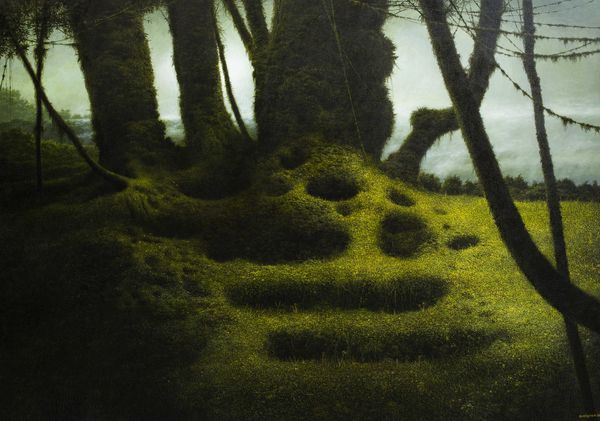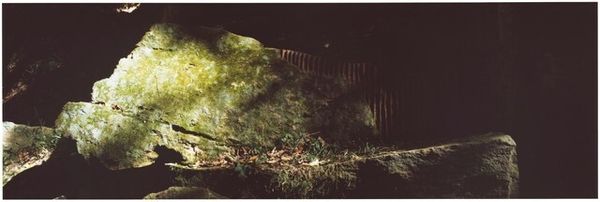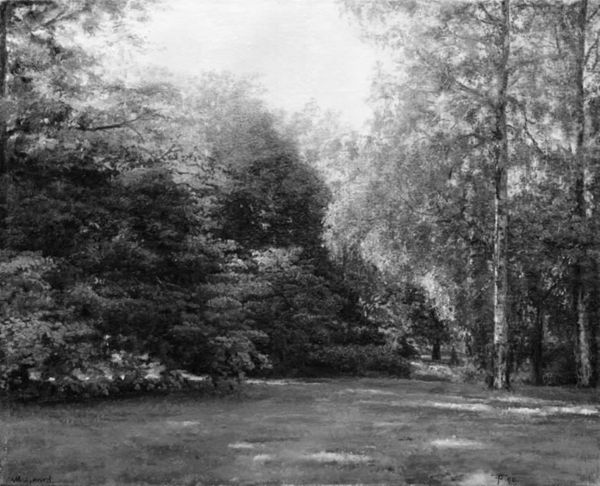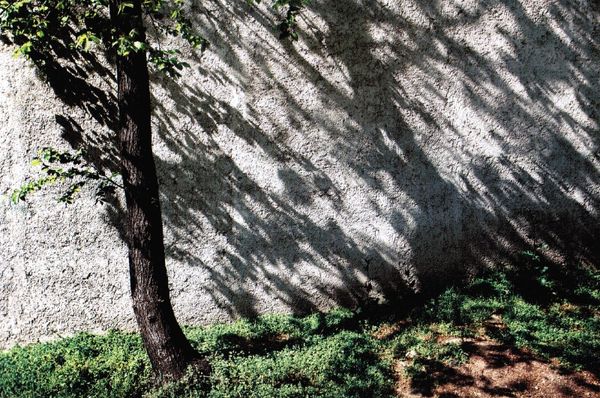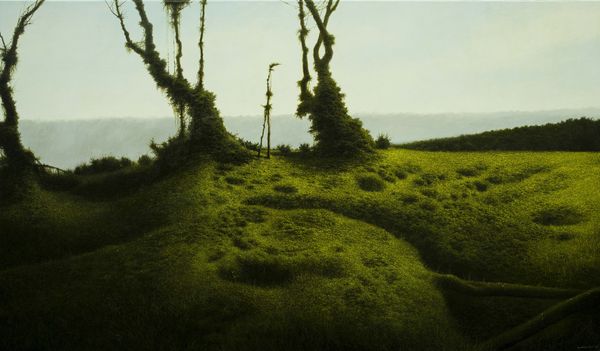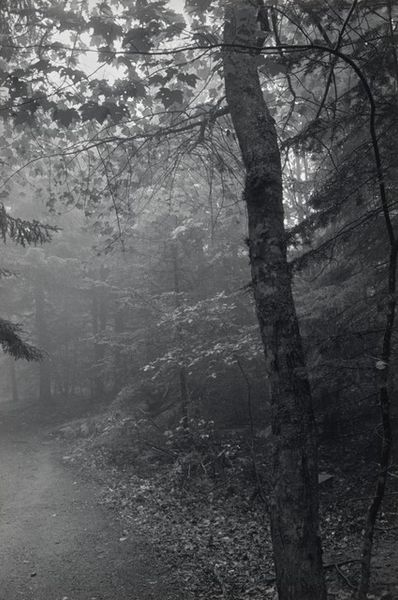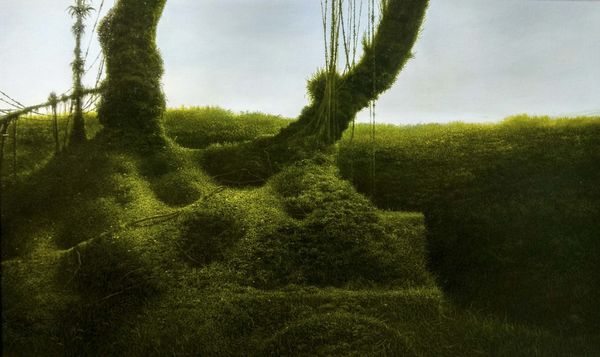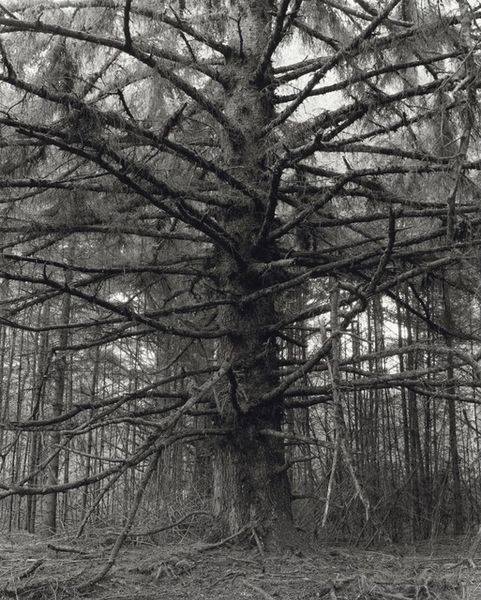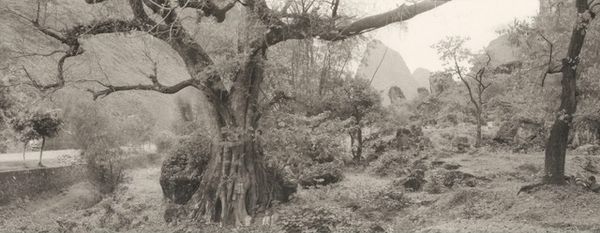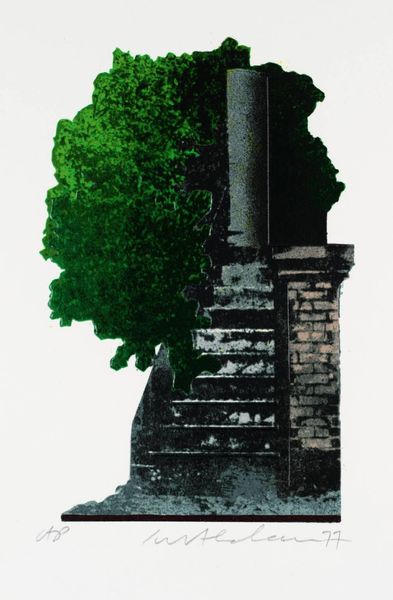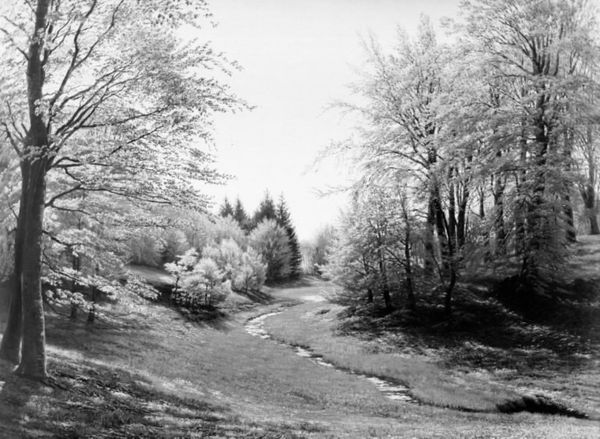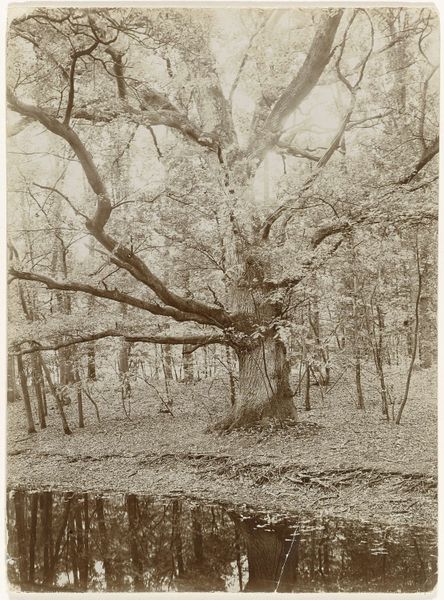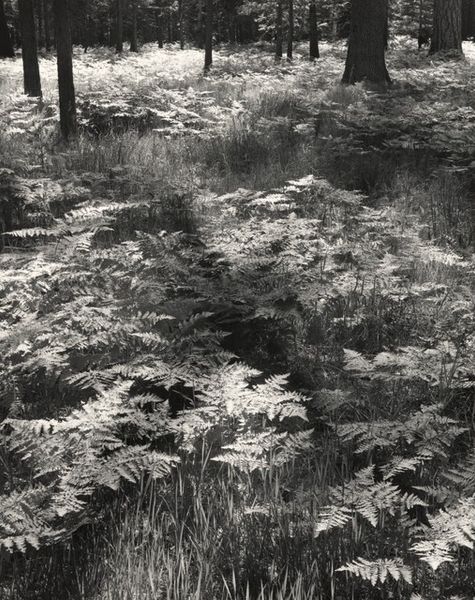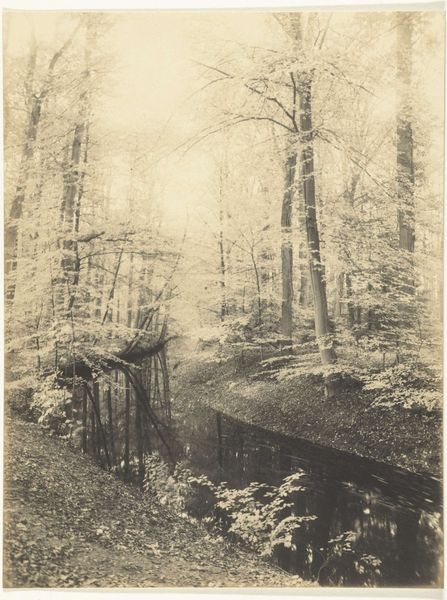
sculpture
#
contemporary
#
minimalism
#
landscape
#
land-art
#
environmental-art
#
sculpture
Copyright: Karl Prantl,Fair Use
Editor: This is Karl Prantl's "Österreich - Tisch" from 1969, a stone sculpture almost completely covered in moss. It has a sort of ancient, timeless quality. What story do you think this sculpture tells? Curator: I see a pointed commentary on the relationship between humanity and the natural world. The "table" form, typically a site of human interaction and culture, is being reclaimed and redefined by nature. Consider the Land Art movement of the time; artists were actively challenging the traditional gallery system, engaging with landscapes directly as both subject and site. Editor: So, you’re saying it's not just a sculpture in nature, but rather nature acting on a sculpture? Curator: Precisely. It prompts questions about institutional frameworks too. Where does this "Tisch" reside? Is it within a museum's grounds, a public park, or a privately-owned forest? Each location shapes its reception, suggesting a different power dynamic between the artwork, the public, and its environment. What do you think happens when nature visibly alters a piece originally created with intention? Editor: It makes me think about control – the artist’s control versus the environment’s. Maybe the artist intended this all along? A statement of nature being a collaborative sculptor as it reclaimed ownership of an otherwise fabricated artistic structure? Curator: It brings forward interesting issues of artistic intention, authorship, and the inevitable decay of human-made objects. These issues highlight how galleries and museums shape art perceptions and make us reflect on nature's power. It becomes a political statement about ecology, cultural memory, and our place within a much larger system. Editor: I never considered the institutional aspect so heavily intertwined within this work. That gives a whole new dimension. Thanks. Curator: The beauty of historical context enriches our views of the art surrounding us, even that consumed by nature.
Comments
No comments
Be the first to comment and join the conversation on the ultimate creative platform.
